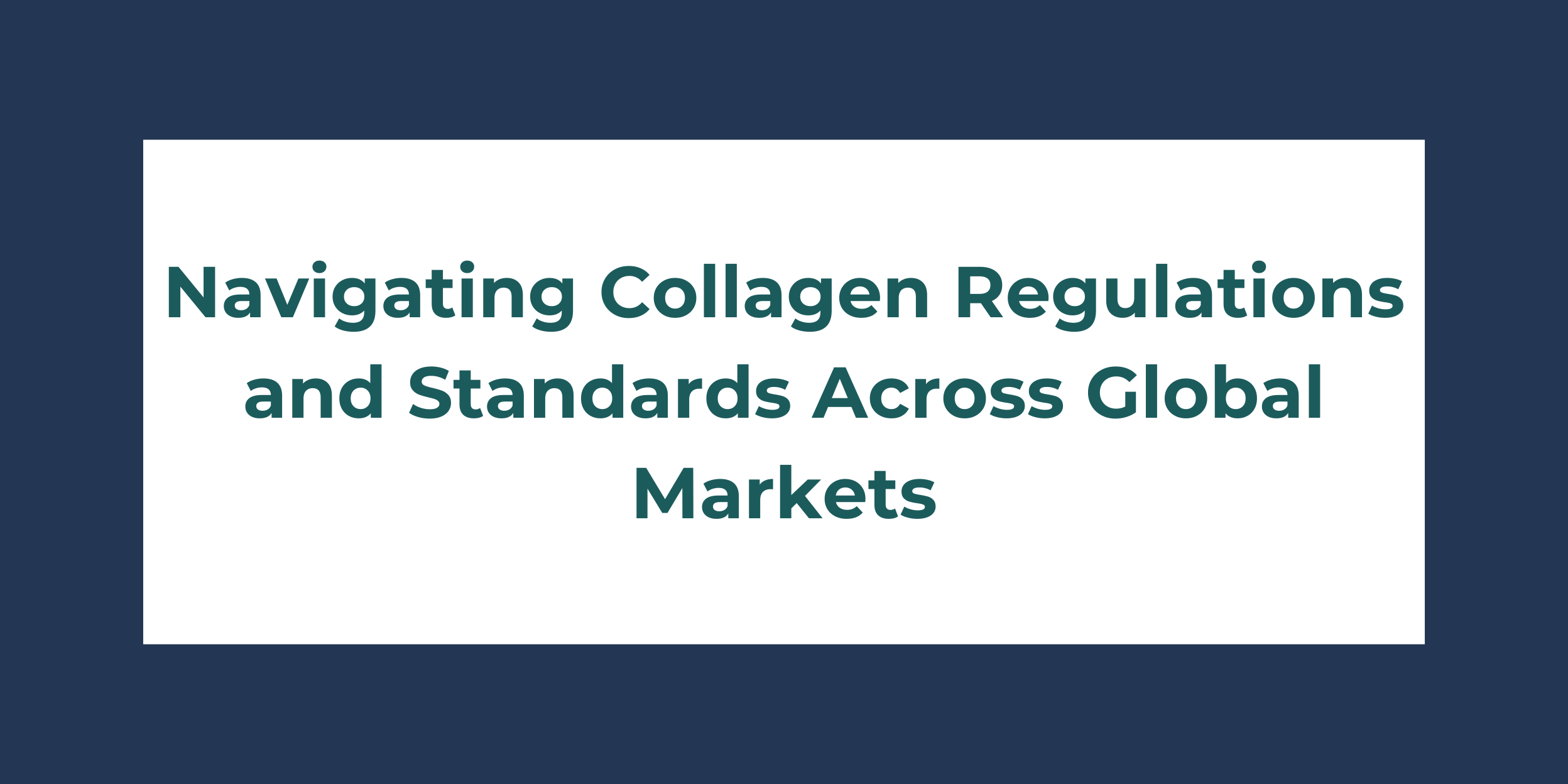In the rapidly growing market for collagen products, understanding and navigating the diverse regulatory landscapes across global markets is crucial for businesses aiming to expand their reach.
Collagen peptides, valued for their health benefits and functional properties, are subject to various regulations that ensure their safety and efficacy.
This article explores the regulatory frameworks governing collagen peptides in key markets, including the United States, the European Union, and India.
United States: FDA and GRAS Status of Collagen
In the United States, the Food and Drug Administration (FDA) oversees the regulation of collagen peptides.
Collagen used in food products must comply with the FDA’s Generally Recognized as Safe (GRAS) standards.
Companies must ensure that their collagen peptides meet the necessary safety requirements and are produced using approved methods.
To achieve GRAS status, a thorough review of scientific evidence and toxicology reports is required.
Additionally, when marketed as dietary supplements, it must adhere to the Dietary Supplement Health and Education Act (DSHEA), which mandates accurate labeling and prohibits misleading health claims.
European Union: EFSA and Novel Food Regulation
The European Union (EU) has stringent regulations for collagen peptides, primarily governed by the European Food Safety Authority (EFSA).
When used in food and supplements, it must be evaluated and approved under the Novel Food Regulation.
This regulation ensures that any new food product introduced into the EU market is safe for consumption.
Manufacturers must provide comprehensive safety assessments, including data on the ingredient’s history of use, toxicological studies, and nutritional information.
Additionally, it must comply with EU labeling regulations, which require clear identification of the ingredient and its source.
India: FSSAI Norms
In India, the Food Safety and Standards Authority of India (FSSAI) sets the regulatory standards for collagen peptides.
The FSSAI, established under the Food Safety and Standards Act, 2006, aims to ensure the availability of safe and wholesome food for consumers.
The FSSAI has specific guidelines for the use of collagen peptides in food products, focusing on safety, quality, and labeling requirements.
- Safety Standards:
- It must be derived from approved sources, such as bovine, porcine, or marine origins. The processing methods used must ensure the elimination of contaminants and pathogens. The final product must meet the FSSAI’s safety criteria, including limits on heavy metals, microbiological standards, and chemical residues.
- Quality Standards:
- The FSSAI mandates that collagen peptides used in food products should be of high purity and free from additives that could compromise quality.
- The peptides must undergo rigorous testing to confirm their amino acid composition and molecular weight distribution.
- Labeling Requirements:
- Products containing collagen peptides must clearly indicate the presence of collagen on the label, along with the source and concentration.
- Additionally, any health claims made about the product must be substantiated by scientific evidence and approved by the FSSAI.
- Misleading claims are strictly prohibited, and manufacturers must ensure that their labeling is accurate and compliant with FSSAI regulations.
Navigating Global Markets
For businesses looking to market collagen peptides globally, understanding these regulatory frameworks is essential. Here are some key steps to ensure compliance:
- Research and Understand Local Regulations:
- Before entering a new market, thoroughly research the local regulations governing collagen peptides.
- Each market has unique requirements, and understanding them will help you avoid regulatory pitfalls.
- Engage with Regulatory Experts:
- Consulting with regulatory experts or legal advisors who specialize in food regulations can provide valuable insights and help streamline the compliance process.
- These experts can assist in compiling the necessary documentation and navigating the approval process.
- Ensure Transparent Labeling:
- Transparent and accurate labeling is crucial for regulatory compliance and consumer trust.
- Clearly indicate the source of collagen, its concentration, and any health claims, ensuring they are backed by scientific evidence and approved by relevant authorities.
- Maintain High-Quality Standards:
- Consistently adhere to high-quality production standards to ensure your collagen peptides meet the safety and purity requirements of each market.
- Regular testing and quality control measures are essential to maintain compliance and uphold your product’s integrity.
- Stay Updated with Regulatory Changes:
- Food regulations are dynamic and subject to change.
- Staying updated with the latest regulatory developments in each market will help you anticipate and adapt to new requirements, ensuring ongoing compliance.
Conclusion
Navigating the complex regulatory landscapes for collagen peptides across global markets can be challenging, but it is essential for business success.
By understanding the regulations set by authorities like the FDA, EFSA, and FSSAI, and adhering to stringent safety, quality, and labeling standards, businesses can confidently expand their market reach.
Engaging with regulatory experts, ensuring transparent labeling, maintaining high-quality standards, and staying informed about regulatory changes are key strategies for thriving in the market.
With these practices in place, businesses can leverage the growing demand for collagen peptides and deliver safe, high-quality products to consumers worldwide.








